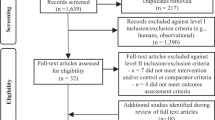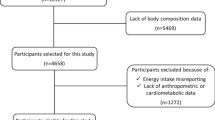Abstract
Traditional Mediterranean diet is known for its health benefits in prevention of cardio-metabolic diseases and risk factors associated with it. The role of red meat in Mediterranean diet is to some extent overlooked with the main focus on foods of plant origin. The majority of existing guidelines encourage general population to limit intakes of red meat. However, in reality, it is a significant part of the Mediterranean cuisine. Red meat is an excellent source of macro and micronutrients: high-quality protein, B vitamins, essential amino acids, omega-3 polyunsaturated fatty acids, phosphorus, zinc, iron, and selenium. Currently, there is not enough scientific evidence to suggest the strict limitation of the red meat consumption among the general population, however, there is a substantial evidence to support the advice to eliminate the consumption of processed meat from the diet.
This is a preview of subscription content, access via your institution
Access options
Subscribe to this journal
Receive 12 print issues and online access
$259.00 per year
only $21.58 per issue
Buy this article
- Purchase on Springer Link
- Instant access to full article PDF
Prices may be subject to local taxes which are calculated during checkout
Similar content being viewed by others
References
Keys A, Keys M. How to eat well and stay well. The Mediterranean way. Garden City: Doubleday and Co.; 1975. p. 325.
Nichols M, Townsend N, Luengo-Fernandez R, Leal J, Gray A, Scarborough P, et al. European Cardiovascular Disease Statistics 2012. Brussels: European Society of Cardiology, Sophia Antipolis; 2012.
Keys A. Coronary heart disease in seven countries. Circulation. 1970;41:186–95.
United States Senate. Select Committee on Nutrition and Human Needs. Dietary goals for the United States. 2nd edn. (US Government printing office, Washington, 1977).
Trichopoulou A, Costacou T, Bamia C, Trichopoulos D. Adherence to a Mediterranean diet and survival in a Greek population. N Engl J Med. 2003;348:2599–608.
Fung TT, McCullough ML, Newby PK, Manson JE, Meigs JB, Rifai N, et al. Diet-quality scores and plasma concentrations of markers of inflammation and endothelial dysfunction. Am J Clin Nutr. 2005;82:163–73.
Alberti-Fidanza A, Fidanza F. Mediterranean adequacy index of Italian diets. Public Health Nutr. 2004;7:937–41.
Panagiotakos DB, Pitsavos C, Stefanadis C. Dietary patterns: a Mediterranean diet score and its relation to clinical and biological markers of cardiovascular disease risk. Nutr Metab Cardiovasc Dis. 2006;16:559–68.
Rumawas ME, Dwyer JT, Mckeown NM, Meigs JB, Rogers G, Jacques PF. The development of the Mediterranean-style dietary pattern score and its application to the American diet in the Framingham Offspring Cohort. J Nutr. 2009;139:1150–6.
Schröder H, Fitó M, Estruch R, Martínez-González MA, Corella D, Salas-Salvadó J, et al. A short screener is valid for assessing Mediterranean diet adherence among older Spanish men and women. J Nutr. 2011;141:1140–5.
Slimani N, Fahey M, Welch A, Wirfält E, Stripp C, Bergström E. et al. Diversity of dietary patterns observed in the European Prospective Investigation into Cancer and Nutrition (EPIC) project. Public Health Nutr. 2002;5:1311–28.
Trichopoulou A, Kouris-Blazos A, Wahlqvist ML, Gnardellis C, Lagiou P, Polychronopoulos E, et al. Diet and overall survival in elderly people. BMJ. 1995;311:1457–60.
Food and Agriculture Organization. Current worldwide annual meat consumption per capita, livestock andfish primary equivalent. (http://www.fao.org/faostat/en/#data/CL, Accessed 24 September 2018).
Aranceta J, Serra-Majem L. Dietary guidelines for the Spanish population. Public Health Nutr. 2001;4:1403–8.
D’Alessandro A, De Pergola G. Mediterranean diet pyramid: a proposal for Italian people. Nutrients. 2014;6:4302–16.
International Agency for Research on Cancer, World Health Organization. IARC monographs evaluate consumption of red meat and processed meat. Lyon: International Agency for Research on Cancer; 2015.
Aykan NF. Red meat and colorectal cancer. Oncol Rev. 2015;9:288.
Cassens RG, Greaser ML, Ito T, Lee M.Reactions of nitrite in meat. Food Technol.1979;33:46–57.
Cassens RG. Composition and safety of cured meats in the USA. Food Chem. 1997;59:561–6.
International Agency for Research on Cancer. Ingested nitrate and nitrite, and cyanobacterial peptide toxins. Lyon, France, WHO; 2010.
Babio N, Bullo M, Basora J, Martinez-Gonzalez MA, Fernández-Ballart J, Márquez-Sandoval F, et al. Adherence to the Mediterranean diet and risk of metabolic syndrome and its components. Nutr Metab Cardiovasc Dis. 2009;19:563–70.
Babio N, Sorlí M, Bulló M, Basora J, Ibarrola-Jurado N, Fernández-Ballart J, et al. Association between red meat consumption and metabolic syndrome in a Mediterranean population at high cardiovascular risk: cross-sectional and 1-year follow-up assessment. Nutr Metab Cardiovasc Dis. 2012;22:200–7.
Micha R, Wallace SK, Mozaffarian D. Red and processed meat consumption and risk of incident coronary heart disease, stroke, and diabetes mellitus. A systematic review and meta-analysis. Circulation. 2010;121:2271–83.
Schwab U, Lauritzen L, Tholstrup T, Haldorsson TI, Riserus U, Uusitupa M. et al.Effect of the amount and type of dietary fat on cardiometabolic risk factors and risk of developing type-2 diabetes, cardiovascular disease, and cancer: a systematic review.Food Nutr Res.2014;58:25145.
Micha R, Peñalvo JL, Cudhea F, Imamura F, Rehm CD, Mozaffarian D. Association between dietary factors and mortality from heart disease, stroke, and type 2 diabetes in the United States. JAMA. 2017;317:912–24.
Karppanen H, Mervaala E. Sodium intake and hypertension. Prog Cardiovasc Dis. 2006;49:59–75.
World Health Organization. Prevention of cardiovascular disease: guidelines for assessment and management of cardiovascular risk. Geneva, Switzerland, WHO; 2007.
Briggs D, Wahlqvist M, eds. Food Facts: the complete no-fadsplain-facts guide to healthy eating. Melbourne: Penguin Books Australia; 1988.
Calkins BM, Whittaker DJ, Nair PP, Rider AA, Turjman N. Diet, nutrition intake, and metabolism in populations at high and low risk for colon cancer. Nutrient intake. Am J Clin Nutr. 1984;40:896–905.
Abbaspour N, Hurrell R, Kelishadi R.Review on iron and its importance for human health. J Res MedSci.2014;19:164–174.
Williams P. Nutritional composition of red meat. Nutr Diet. 2007;64:S113–9.
Funding
This article is published as part of a supplement sponsored by the Mediterranean Diet Foundation and the Diputació de Barcelona.
Author information
Authors and Affiliations
Corresponding author
Ethics declarations
Conflict of interest
The authors declare that they have no conflict of interest.
Rights and permissions
About this article
Cite this article
Uzhova, I., Peñalvo, J.L. Mediterranean diet and cardio-metabolic health: what is the role of meat?. Eur J Clin Nutr 72 (Suppl 1), 4–7 (2019). https://doi.org/10.1038/s41430-018-0303-y
Published:
Issue Date:
DOI: https://doi.org/10.1038/s41430-018-0303-y



